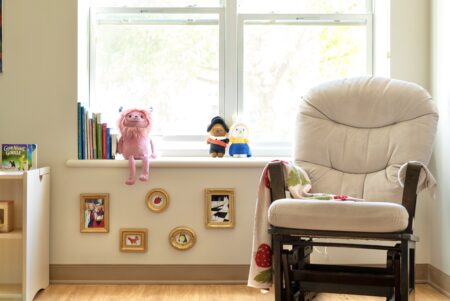When it comes to twenty-somethings, I hear this complaint a lot: There should be a life skills class in college. Why don’t they ever teach us how to pay our taxes? Or how make our first budget? Where am I supposed to learn that?
I’ve often thought these things myself. Filing taxes for the first time was overwhelming and confusing for me, and I haven’t learned to balance a checkbook since Home Economics in seventh grade. When I started earning my own money through this blog, I wasn’t sure how to budget, list my expenses, or plan for the future; they were skills I had simply never learned. But through the help of friends and many online resources, I learned to make a simple budget that’s given me freedom, security, and peace of mind. Best of all, today I reached my first savings goal!
Below I show you how I did it, and how to make your first budget.
Pick a time frame
College students are lucky in that we get a fresh start a few times a year. Your employment and expenses may be different during the Fall semester, the Spring semester, or Summer break, so it’s probably wise to set your first budget within one of those timeframes; either a semester or a long break. If you’re a recent graduate or have your first job, you could also choose to do a month-by-month budget based on your monthly income.
Make a list of your income
Many college students work irregular hours or have irregular income due to factors like tips and overtime. If this is the case for you, make a low-budget guess of your income — the lowest it could realistically be. This way, you won’t set a budget that you can’t always afford. Also include monetary gifts and allowance, if you receive those.
If you have a regular monthly income from a full-time job or multiple part-time jobs, tally up what all your income streams amount to every month. Again, if you’re unsure (for example, if you work irregular hours), it’s better to be conservative.
Self-Reported Taxes
We live in an age where it’s more common than ever to be self-employed or to self-report your income for other reasons. If you work for yourself or if you get paid in cash for a job like babysitting or housecleaning, be sure to take into account the quarterly or annual taxes you have to pay before you start making your budget. If you work for an employer and your taxes are already taken out of your paycheck (if you see deductions for things like FICA), then you don’t need to worry about this. In case you’re not sure, see if you can ask an accountant or a friend who studies accounting. There will also be accounting resources at your local library.
List your expenses
Student Expenses:
Coming up with a complete list of your expenses off the top of your head can be challenging, so start with the big-ticket items: tuition, student loans, food, rent, etc. You can pull out some previous bank statements (or download them from your bank’s website) to see what you’re regularly spending money on.
Here are some costs to consider. Don’t be scared! Since you are a college student, your parents may pay some of these for you; in your personal budget, only include the costs you yourself are paying.
- College expenses: tuition, fees, books, school supplies
- Living expenses (on-campus): college room and board, meal plan, food costs for non-meal plan
- Living expenses (off-campus): Rent, water bill, energy bill, insurance, food costs
- Transport: public transportation, car payment, car insurance, gas, parking
- Medical costs: prescriptions, health insurance
- Communication: cell phone, wifi
- Personal expenses: clothes, hygiene, hair cuts, etc.
- Debts: student debt, credit card debt
- Entertainment: Netflix, take-out, going out, etc.
Expenses for Recent Graduates:
If you’re out of college, you don’t need to pay things like tuition and book fees. However, you will likely have to pay for things like the following:
- Student loans
- Living expenses: Rent, water bill, energy bill, insurance
- Grocery costs
- Transport: public transportation, car payment, car insurance, gas, parking
- Medical costs: prescriptions, health insurance
- Communication: cell phone, wifi
- Personal expenses: clothes, hygiene, hair cuts, etc.
- Entertainment: Netflix, take-out, going out, etc.
Again, you can get a clear picture of what your expenses are by looking at previous bank statements.
Fixed vs. Variable Expenses
Some expenses are regular, like rent, insurance, and debt payments. Others depend on the time of year: students only pay for textbooks in September and January, for example, and as an adult your haircuts or prescription costs may happen on an as-needed basis. If you have several of these “variable” expenses, rather than listing them individually on your budget, make them a category like “extras” or “other.”
Wants vs. Needs
If your expenses are a mile-long and you need to start cutting corners, make a distinction between “wants” and “needs.” Food, prescriptions, and insurance are “needs” that should always be included in your budget. Netflix and take-out, not so much. Scrap the wants in order of least important to most important until your expenses are more manageable.
Wiggle room
You want to plan for a little wiggle room, because no one is able to stick to their budget 100%, all of the time. 10% wiggle room for expenses is great, if you can afford it; if not, choose a small percentage or number that will prevent you from having to deal with overdraft fees.
Savings
Savings is an important area of your budget, but a lot of young people overlook it. You want to save in a few different areas; saving for big-budget items like a new laptop, for example; saving for an emergency fund the next time you need to fly home to see your parents; and long-term savings so that you always have a financial safety net.
While the general rule for savings is “as much as you can,” 10-15% of your income is the recommended amount, and up to 20% is great if you can. Put this money in a savings account and leave it there except for emergencies or major planned expenses.
Balancing Your Budget
Here’s the basic equation for putting together your budget:
Income + Gifts + Allowance ≥ Fixed Expenses + Variable Expenses + Wiggle Room + Savings
That is to say:
Total money in ≥ total money out
The money you receive or earn every month should be more than the money you spend and save put together. If you subtract for expenses, savings, and wiggle room from your income, gifts, and allowance, and the answer is a positive number, then you have a balanced budget. If it is a negative number, then you need to cut back on expenses or savings.
Reviewing Your Budget
Next, take a step back and make sure that the budget you put together reflects you and your values. Do you care about charity or tithing, but leave it out of your budget? Or do you feel you’re spending more or less in a certain area than you want? Reflect, tweak, and re-balance until you’re happy with your answers.
Sticking to Your Budget
In the modern day, sticking to a budget is easier than ever. I love using Mint, but have also heard good things about Manilla and BudgetTracker. If you’re reliable and will be sure to be honest with yourself, you could even use an Excel or Google Sheets spreadsheet.
Resources
Here are some great budgeting resources that I found really helpful in making my own budget and writing this article:
- College Student Budget Worksheet by College in Colorado
- How to Set a Savings Goal by the Money Advice Service
- And Adult Budgeting 101 by LifeHacker, for those of you entering the real world!
Following this guide should help you figure out how to set up your first budget, but I always recommend seeking further resources elsewhere. You can find extra help by going to your local library or finding an accountant who is willing to help you. Good luck!






This is awesome! I especially liked how you included some resources for budgeting help. currently, I write down all my expenses twice a week and make sure that I am staying on budget 🙂
X,
cristinawashere.com
This is a big help to everyone making budgets! I think the hardest part of having a budget is sticking to it!
-Anna | http://www.fivefootandfabulous.com
this post is SO helpful. I am so going to refer back to this when I am planning my college study abroad budget next year! x, kenz http://sincerelykenz.com
Great post! I totally agree with giving yourself a little wiggle room in each budget. When I first started managing my finances, I didn’t do this which made me feel like I wasn’t doing a great job. Now I factor in wiggle room because unexpected things happen! Xoxo Mindy
What excellent tips!! Definitely agree too about the wiggle room. 🙂
This year I have been really adamant about building up my savings account, as well as continuing to put money into my checking. Yay for savings!
xoxo A
http://www.southernbelleintraining.com
This is such a comprehensive guide for college students, I definitely could have used a budget when I was in college!
I need to get better at budgeting. I think my problem is that I am too easy on myself and that I need someone to help keep me accountable. Also, wiggle room is so important! Many things in live don’t always go as plan and how you spend your money is one of them! Thanks for sharing your tips!
xoxo
Amy | Pastel N Pink
What awesome ideas, Sara! I absolutely love that you posted this. You are so right – they don’t teach these things in college, and they definitely should. I think a class on “adulting” (for lack of a better term) would be an awesome addition to High Schools AND colleges. They could knowledge that you have to know once you graduate like budgeting, filing taxes, basic car and home information, etc. etc. It could benefit so many people, especially those that do not have a lot of help from their parents & are left to learn it on their own. Awesome, awesome post!
I’m horrible at budgeting but it’s something that is so so important! It keeps you sane, too!
xo
Lauren
The Fashionista’s Diary
Since I have a big summer trip planned, I HAVE to budget and plan and keep track so, so much. Its a weekly thing! I appreciate this guide and I think its a must to have some wiggle room. Sometimes plans and purchases pop up unexpectedly and its nice to have some space to move with your money.
http://thealwaysblog.com
I wish I would have had these tips in college! Unfortunately, I am still not the best at budgeting, but feel that if I would have started earlier I would have better budgeting skills!
xo Ashley
Budgeting is extremely difficult! I have found it to be helpful to have X amount of money go directly into my savings account so it’s like I never saw it! 🙂 Awesome tips!
Lyss | Life with Lyss
wish i knew these back in college i wouldn’t have been so broke lmao!
I could’ve totally used this while I was in school. Great resource for college kids!
xo,
Stephanie
Diary of a Debutante
http://www.thediaryofadebutante.com
This is awesome! Last year I had a part time job, but this semester I have an unpaid internship so I will have to budget even more! I’ll be using these tips for sure as I plan for the upcoming semester!